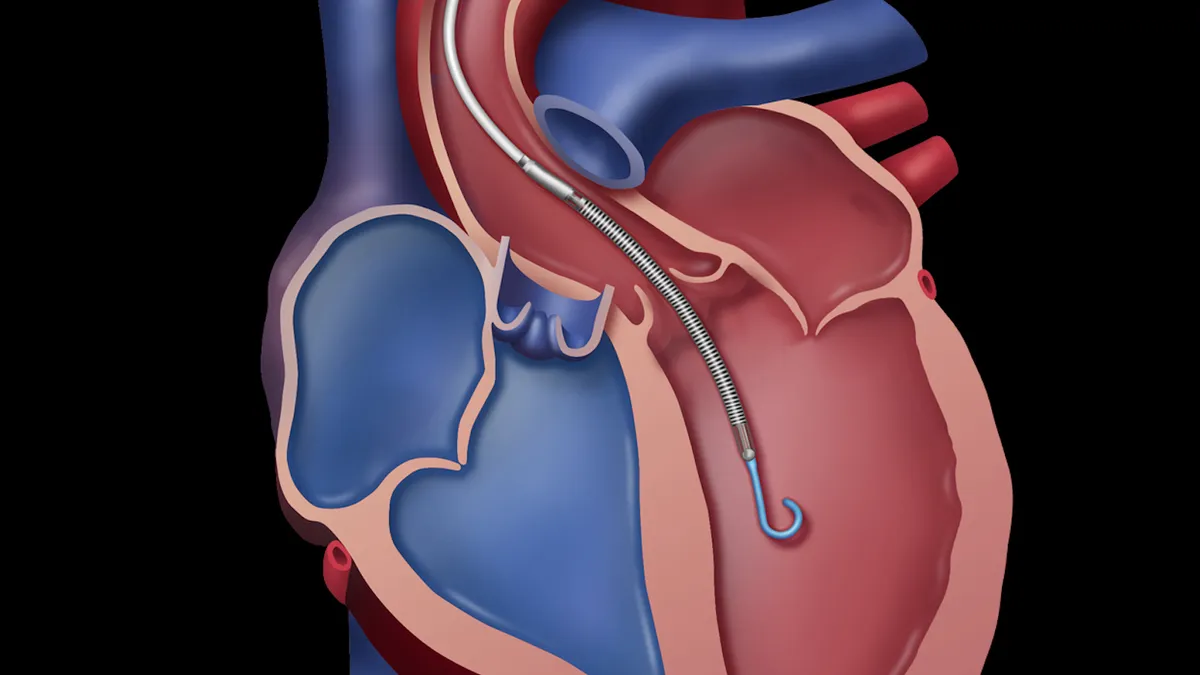Dive Brief:
- Abiomed on Thursday outlined plans to start a "wave of clinical studies" to counter research papers suggesting its Impella heart pump is more expensive and dangerous than alternatives.
- The two large observational studies presented at a medical meeting last November sparked a slowdown in sales of Impella, causing revenues to miss expectations last month and sending shares in Abiomed spiraling downward.
- In conjunction with its quarterly results posted Thursday, Abiomed laid out how it will run trials and target physicians to quash doubts about Impella and secure the device a strong recommendation in treatment guidelines. Shares fell about 6% in late morning trade.
Dive Insight:
Abiomed's pre-released third quarter figures last month, confirmed on Thursday, fell short of analyst expectations. The early release sent shares in the company down 17% and shares fell again on Thursday, suggesting investors are not entirely convinced and not pleased with a tweaked full-year forecast.
The medtech blamed the results on the impact of the two studies suggesting Impella was associated with higher rates of bleeding and in-hospital deaths compared to use of an intra-aortic balloon pump.
In the wake of the studies, Abiomed pointed out perceived flaws with their designs, but its effort to reassure physicians remains a work in progress. The slowdown in Impella use seen in December continued into January. Abiomed expects that trend to cause its full-year sales outlook to come in at the low end of its forecast range of 10% to 14%.
Near-term efforts to improve sales center on physicians. In the longer term, Abiomed plans to put Impella through randomized controlled trials designed to conclusively prove the benefits of the device.
Abiomed is now screening centers that may participate in one of the trials, PROTECT IV, with a view to starting enrollment within the next year. The trial will randomize high-risk percutaneous coronary intervention patients to undergo the procedure either with the use of Impella heart pump or without hemodynamic support.
Talking to investors on Abiomed's conference call, CEO Mike Minogue said trials of Impella pose "ethical and logistical challenges" that make it hard to randomize patients. However, Minogue contended Abiomed has "the infrastructure and expertise to execute multiple clinical trials."
Abiomed plans to use those resources to start another study, RECOVER IV, once it has progressed its other clinical programs. RECOVER IV will compare Impella to other treatments in acute myocardial infarction shock PCI patients.
The ultimate goal of the expanding Impella clinical trial program is to get a Class I recommendation in treatment guidelines jointly developed by the American College of Cardiology and the American Heart Association. Class I recommendations indicate the benefits of a treatment strongly outweigh the risks, as shown by high-quality data from two or more randomized trials.
The two studies questioning Impella's benefits were presented at the AHA's annual meeting last year.
Getting a Class I recommendation could establish Impella as a go-to treatment. For now, Abiomed is fighting to get some physicians to consider Impella at all, particularly for elective patients. Minogue was highly critical of the papers that put Abiomed in that position, arguing the authors "manipulated a subset of 4% of our patients over a 10-year observational database."










